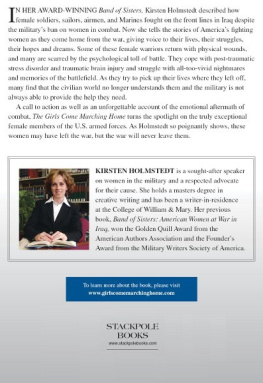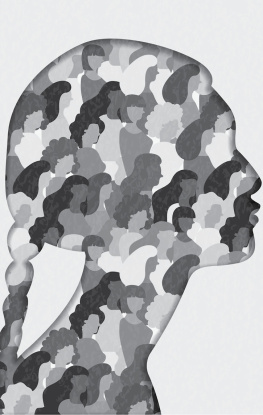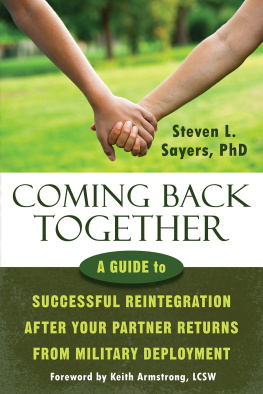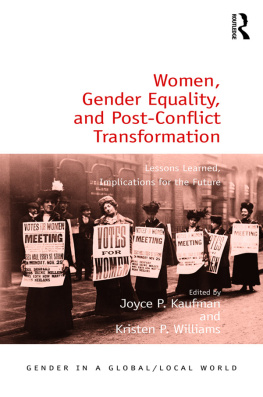Gender, Conflict and Reintegration in Uganda
This book explores what happened when the tens of thousands of girls (now women), who were abducted by the Lords Resistance Army and inducted into their campaign of violence against the Ugandan government, returned home.
Drawing on extensive original research, the author considers the challenges that the formerly abducted women have encountered upon their return, the strategies that have been used to aid their reintegration and the enduring stigma of abduction that they continue to suffer from. The author demonstrates that homea place of hope and comfortcan also be a hostile environment, which leaves formerly abducted women in precarious and vulnerable situations. The many shortcomings in the reintegration process have serious implications for the prospects of post-conflict reconstruction.
Analysing reintegration as a long-term and dynamic process, which involves complex negotiations and exchanges between hosting communities and formerly abducted women, this book will be of interest to scholars, policymakers and practitioners working in the fields of post-conflict reconstruction, African politics and gender and conflict.
Allen Kiconco received her PhD in African Studies from the Department of African Studies and Anthropology at the University of Birmingham in 2015. Since October 2017 she has been a Postdoctoral Fellow in the Department of Political Studies at the University of the Witwatersrand, South Africa.
Routledge Studies on Gender and Sexuality in Africa
1. The Tunisian Womens Rights Movement
From Nascent Activism to Influential Power-broking
Jane D. Tchaicha and Khdija Arfaoui
2. Disability and Sexuality in Zimbabwe
Voices from the Periphery
Christine Peta
3. Love, Sex and Teenage Sexual Cultures in South Africa
16 Turning 17
Deevia Bhana
4. African Women, ICT and Neoliberal Politics
The Challenge of Gendered Digital Divides to People-Centered Governance
Assata Zerai
5. Widow Inheritance and Contested Citizenship in Kenya
Building Nations
Awino Okech
6. Women, Agency, and the State in Guinea
Silent Politics
Carole Ammann
7. Women and Peacebuilding in Africa
Edited by Anna Chitando
8. Gender, Conflict and Reintegration in Uganda
Abducted Girls, Returning Women
Allen Kiconco
First published 2021
by Routledge
2 Park Square, Milton Park, Abingdon, Oxon OX14 4RN
and by Routledge
605 Third Avenue, New York, NY 10158
Routledge is an imprint of the Taylor & Francis Group, an informa business
2021 Allen Kiconco
The right of Allen Kiconco to be identified as author of this work has been asserted by her in accordance with sections 77 and 78 of the Copyright, Designs and Patents Act 1988.
All rights reserved. No part of this book may be reprinted or reproduced or utilised in any form or by any electronic, mechanical, or other means, now known or hereafter invented, including photocopying and recording, or in any information storage or retrieval system, without permission in writing from the publishers.
Trademark notice: Product or corporate names may be trademarks or registered trademarks, and are used only for identification and explanation without intent to infringe.
British Library Cataloguing-in-Publication Data
A catalogue record for this book is available from the British Library
Library of Congress Cataloging-in-Publication Data
Names: Kiconco, Allen, author.
Title: Gender, conflict and reintegration in Uganda : abducted girls, returning women / Allen Kiconco.
Other titles: Routledge studies on gender and sexuality in Africa.
Description: Abingdon, Oxon ; New York, NY : Routledge, 2021. | Series: Routledge studies on gender and sexuality in Africa | Includes bibliographical references and index. |
Identifiers: LCCN 2020057623 (print) | LCCN 2020057624 (ebook) | ISBN 9780367436346 (hardback) | ISBN 9781003025979 (ebook)
Subjects: LCSH: Lords Resistance Army--Demobilization. | Child soldiers--Rehabilitation--Uganda. | Abduction--Uganda. | Girls--Crimes against--Uganda. | Kidnapping victims--Rehabilitation--Uganda. | Women and war--Uganda.
Classification: LCC DT433.285 .K53 2021 (print) | LCC DT433.285 (ebook) | DDC 967.6104--dc23
LC record available at https://lccn.loc.gov/2020057623
LC ebook record available at https://lccn.loc.gov/2020057624
ISBN: 978-0-367-43634-6 (hbk)
ISBN: 978-1-003-02597-9 (ebk)
A considerable number of people have contributed to this project in big and small ways. Primarily, I wish to appreciate and thank formerly abducted women who participated in this research for sharing their experiences, lives and homes. You remain my greatest source of inspiration, and I dedicate this book to you. Apwoyo matek!
The research on which this book is based was conducted for my PhD studies at the University of Birmingham, completed in December 2015. My special thanks to Reginald Cline-Cole, my supervisor, for intellectual guidance and mentorship throughout the research process. I am very grateful for your support post-PhD and while writing this book. My gratitude and appreciation also go to Sabine Lee and Benedetta Rossi for providing academic support and mentorship during my PhD studies. You were not my supervisors, but you took great interest in the research and worked closely with me, introducing me to networks that enhanced my understanding and analysis of my research's central themes. I have learned a great deal working with both of you over the years, and thank you for your support with this book project. I would also like to appreciate friends and colleagues, particularly Eunice Apio and Martin Nthakomwa, for your friendship and intellectual conversations during the PhD and years after.
During fieldwork in the Acoli region, I worked with several people to whom I am so grateful. Thanks to Adam Branch for supporting my affiliation with the Makerere Institute of Social Research, where I applied for research clearance. I am immensely grateful to Kitgum Concerned Women's Association friends and colleagues who welcomed and supported me throughout my fieldwork. I cannot mention all your names here, but through your friendship, insights and support, the fieldwork was a success, making this book project possible. Thank you to my research interpreters, Kenneth Onen and Diana Jean Angom, and also to Francis Onekalit and Peter Labeja, my interview transcribers. Your co-operation was invaluable. This study would not have been possible without your enthusiasm, support and tolerance. For all the people I met, interacted and stayed with in Kitgum, Lamwo, Pader and Gulu, thank you for your kindness and generosity.
In writing this book, I was a Postdoctoral Fellow at the University of the Witwatersrand, Johannesburg, South Africa. My sincere gratitude goes to Joel Quirk for professional mentorship and support during my tenure at Wits University. You believed in this project from the beginning, and you guided me throughout the writing and publishing processes. Writing my first book in a pandemic and far from home was a daunting experience. However, your support, encouragement and enthusiasm made an enormous difference. Similarly, I wish to thank Annie Bunting for her support since I began collaborating on the Conjugal Slavery in War project. While we worked on other projects, you often asked about my progress with the book, always willing to listen and provide academic and professional support.





